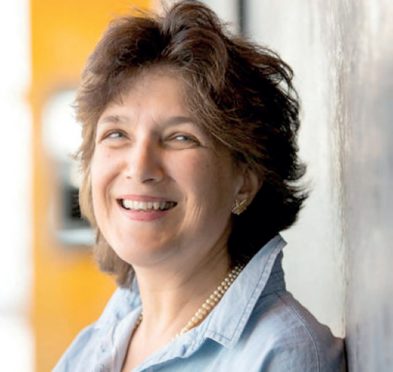
Scotland’s family doctors should have been enlisted far sooner to protect the country’s care homes from the onslaught of Covid-19, according to a leading public health expert.
Allyson Pollock said GPs have told her they “have never been quieter” and urged ministers to redeploy medical staff onto the frontline to protect the vulnerable and slow the spread of coronavirus.
Professor Pollock, director of the Newcastle University Centre for Excellence in Regulatory Science, called for NHS staff to be redeployed to test and trace in community social care and care homes, where more than a third of coronavirus deaths have been recorded.
She believes a decision on March 12 by Cobra, the UK Government’s emergency committee, to stop contact tracing was an error.
She said: “Contact tracing should have been used to shield the most vulnerable, including the frail and elderly, the very group the government said it was going to protect.
“The moment you get a case in a care worker or resident you should be doing contact tracing. You should be finding out which staff, residents, and other people, including in their household, they have been in contact with, and then isolate cases and quarantine contacts.
“But contact tracing still hasn’t restarted and the government hasn’t made sufficient plans to ramp up the staff capacity in the homes.
“It should be nationalising the staff, giving them good terms and conditions, and redeploying staff working in the empty parts of the service.
“Some GPs I have spoken to have said they’ve never been so quiet in the whole of their working lives and that Covid-19 assessment centres are overstaffed.”
A total of 11 NHS staff and carers in Scotland have died with coronavirus since the start of the pandemic.
Professor Pollock said a fraction of the money spent on NHS Nightingale field hospitals such as Glasgow’s £43 million Louisa Jordan could have been invested in local home monitoring and community prevention including contact tracing.
The Royal College of General Practitioners Scotland said many GPs were working in local coronavirus assessment centres.
Dr Alasdair Forbes, deputy chairman (Policy) of RCGP Scotland, said: “GP surgeries remain open for those patients who have concerns about their healthcare that aren’t related to coronavirus. GPs and their teams are working hard to deliver this care in a safe and appropriate way, be that over the telephone, via video link and when necessary face to face.”
The Scottish Government said: “GPs are expected to care for and support patients wherever the patient’s home is. So we know practices continue to be critical in supporting frail and elderly residents in care and nursing homes. Adopting new ways of working, they have ensured people are provided with the care they need during this pandemic.
“From the start of the pandemic, we have been pursuing the correct testing strategy for Scotland as advised by senior clinicians and public health experts. Our priority is to test for clinical reasons, for example those in hospitals or care homes, followed by key workers in our health and care system. Other key workers and their families have also been tested to enable them to return to work.”

Enjoy the convenience of having The Sunday Post delivered as a digital ePaper straight to your smartphone, tablet or computer.
Subscribe for only £5.49 a month and enjoy all the benefits of the printed paper as a digital replica.
Subscribe